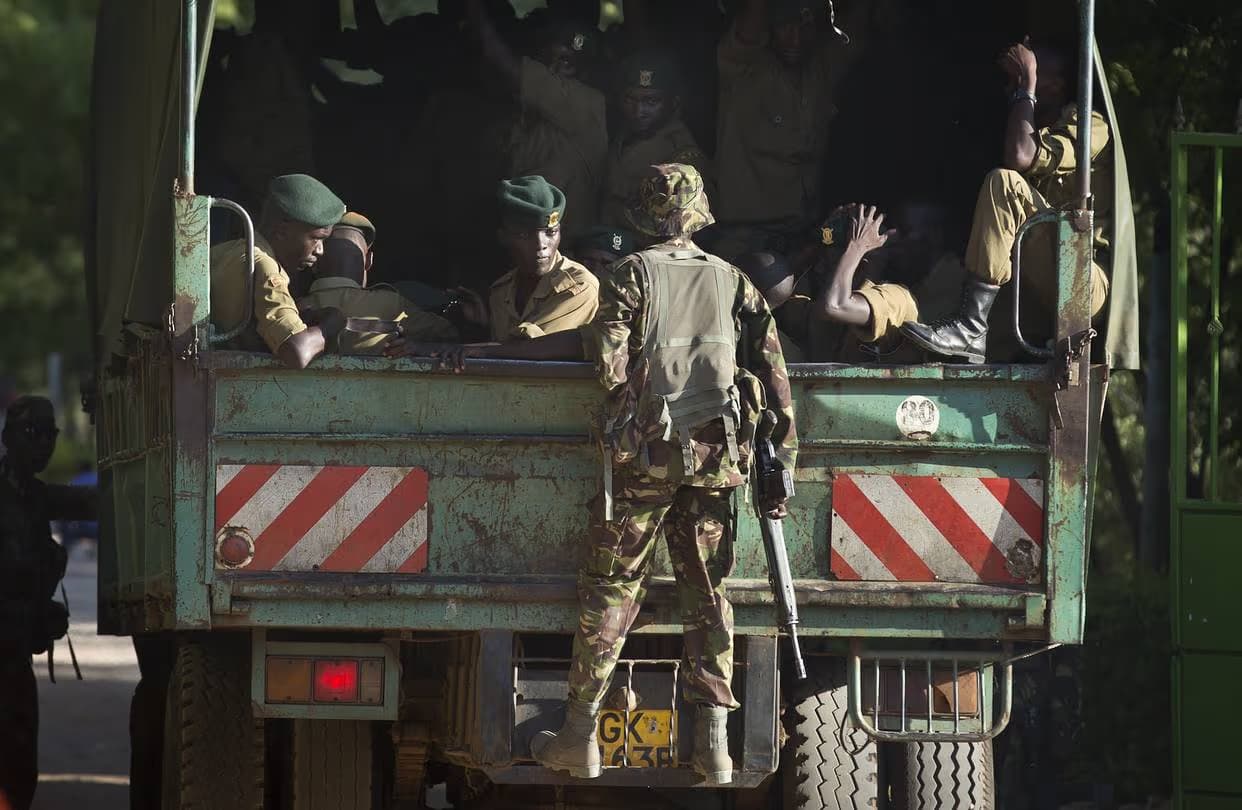We're loading the full news article for you. This includes the article content, images, author information, and related articles.
A 17-year-old boy is fighting for his life at Narok County Referral Hospital, facing possible double leg amputation after allegedly being tortured by police officers, prompting an official investigation and sparking national outrage over police brutality.

The Independent Policing Oversight Authority (IPOA) on Friday, October 24, 2025, launched a formal investigation into the alleged torture of a 17-year-old secondary school student, Felix Senet Takona, by police officers at Naroosura Police Station in Narok South Sub-County. The Form Two student is currently in critical condition at Narok County Referral Hospital, with doctors warning that severe infections in his legs, allegedly caused by chemical burns, may necessitate amputation.
In a statement, IPOA Chairperson Ahmed Isaack Hassan confirmed the probe, stating the authority would investigate the circumstances of the minor's arrest and subsequent injuries to determine the extent of police involvement and recommend appropriate action. "In line with its mandate to ensure accountability and the observance of human rights in policing, IPOA is investigating... and, where necessary, make appropriate recommendations for redress," Hassan's statement read.
Felix Takona was arrested on Monday, October 10, 2025, at Naroosura shopping centre on suspicion of stealing tractor parts. Speaking from his hospital bed, where he is chained and under police guard, the minor alleged that two officers at the station tortured him to force a confession. He claimed he was beaten with metal chains and had a corrosive liquid, which he suspects was acid, poured on his legs. His family stated they were denied access to him while he was in custody.
The National Police Service (NPS) has not issued a formal public statement regarding the allegations. However, some media reports indicate that police have claimed the minor's injuries were the result of a mob justice attack prior to his arrest, an account the victim and his family strongly dispute. FURTHER INVESTIGATION REQUIRED.
The case took a bewildering turn when the critically injured minor was brought before the Narok Law Courts. The initial charge of stealing tractor parts was reportedly altered to breaking into a shop and stealing cooking oil and cash valued at KSh 36,500. On October 13, a magistrate ordered that Takona receive medical treatment for his visible injuries before a plea could be taken. However, he was allegedly returned to police custody instead of being hospitalized.
The following day, October 14, he was presented in court again and pleaded guilty, resulting in a two-year prison sentence. Takona now asserts this plea was coerced. Due to the severity of his injuries, prison authorities in Narok declined to admit him, forcing his return to the hospital for urgent medical care.
This incident has reignited the national conversation on police brutality in Kenya. Human rights organizations have condemned the act and demanded immediate justice for the victim. Nakuru Human Rights Network Director, David Kuria, called for the immediate interdiction and prosecution of the officers involved, citing violations of the Constitution and the Children's Act. Civil rights advocates have also noted previous reports of brutality at the same Naroosura Police Station, raising concerns about a potential pattern of abuse.
The case highlights a persistent challenge in Kenyan policing. A September 2025 report by the International Justice Mission (IJM) revealed that nearly 43% of Kenyans had experienced police misconduct between 2022 and 2024. Despite the existence of oversight bodies like IPOA, fear of retaliation and a lack of trust often prevent victims from reporting abuse. This incident serves as a critical test for Kenya's commitment to upholding human rights and ensuring accountability within its law enforcement agencies, as enshrined in Article 244 of the Constitution.
Keep the conversation in one place—threads here stay linked to the story and in the forums.
Sign in to start a discussion
Start a conversation about this story and keep it linked here.
Other hot threads
E-sports and Gaming Community in Kenya
Active 9 months ago
The Role of Technology in Modern Agriculture (AgriTech)
Active 9 months ago
Popular Recreational Activities Across Counties
Active 9 months ago
Investing in Youth Sports Development Programs
Active 9 months ago